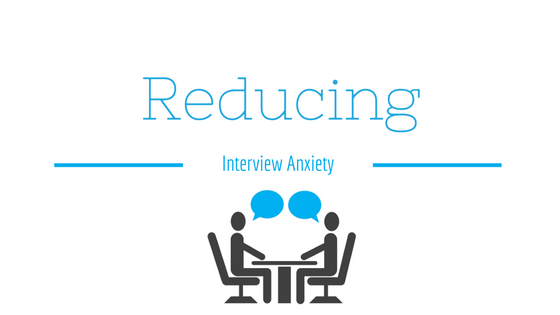
As the fall semester nears its end, it comes time to start thinking about the application process for the next term. Perhaps you are a new professor looking for a position at a new institution, or maybe you are changing colleges at the end of the semester. Regardless, the interview and application process tend to be one of the most stressful parts of acquiring a position. In a 2013 survey produced by from Harris Interactive and Everest College, researchers found that 92% of adults looking for jobs had anxiety related to the interview process; anxiety over being too nervous was the top polled response. It is never too early to start preparing and visualizing positive outcomes from an interview.
Before the interview, prepare. As with any interview, it is essential to do your research: understand the college to which you are applying by dedicating time to read its mission statements and achievements in the community; get a sense for the department to which you applying, and see how your own personalized teaching philosophy fits in these two areas. Take the time to review your resume, being sure to highlight previous teaching, research, and public service. Prepare possible statements on how these experiences will translate into the classroom. Being familiar with your school and yourself are key in the preparation process. Of course, prepare any questions that you may have about the position. For more advice on questions to ask during an interview, see Adjunct Professor Link’s “Ten Questions to Ask when Interviewing for an Adjunct Teaching Position” in Resources.
Before the interview, visualize. As the colloquial saying goes, “You are your own worst critic.” The field of psychology has demonstrated that positive self-talk has positive outcomes on behavior. Although it may feel hokey, “in the context of job interviews and when it’s called ‘verbal self-guidance’- it does seem to work” (Latham & Budworth, 2006). “Just don’t talk to yourself out loud and in front of the interviewer†(CBS News: Moneywatch, 2011).
During the interview, engage, and engage genuinely. Give the interviewer your utmost attention with a nice firm handshake at the beginning and maintain natural eye contact throughout. Do not be afraid to express your qualifications. However, psychology has pointed out that self-promotion may not necessarily be the most effective for landing the job. In a study involving 116 college students trying to find their first job, those who “praised the organization, complimented the interviewer, showed enthusiasm, discussed common interests, smiled and maintained eye contact” tended to be reviewed better than those just self-reporting skills (CBS News: Moneywatch, 2011). Being successful in interviews relies just as much on your goals, teaching credentials, and classroom philosophies as much as it does being personable and maintaining a friendly demeanor.
As you begin your preparation for the interview process, remember that your own psychology can work for or against you. Positive self-talk, engagement, visualization, and preparation are key in avoiding interview anxiety.

